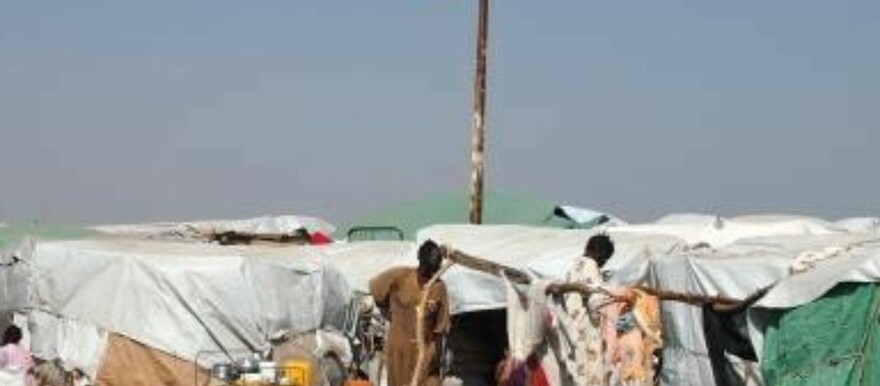Relief and Rehabilitation Commission (RRC) director for Rubkona County in Unity state, William Bakuony, said 451 individuals fleeing the conflict in Sudan have arrived in Riokrial Payam.
Speaking to Radio Tamazuj, Bakuony of the RRC revealed that 441 are South Sudanese and another 10 are from other nationalities. He added a team of senior government officials had, over the weekend, been dispatched to Riokrial to verify the exact number of new arrivals.
“We went on Sunday and it was so hot while we were at Riokrial Payam. And buses came with new arrivals. 441 South Sudanese individuals and 221 households came and they are stationed at Riokrial. And we asked for the number of the Sudanese and they told us that they are ten people. We didn’t count them, but we are going to set up a team to get the accurate number that is coming every day,” he said.
Bakuony said that humanitarian organizations are working to ensure that emergency supplies, including food and non-food items, are delivered to the new arrivals.
“Rubkona County authorities are going to find out the accurate number because new arrivals are still coming on a daily basis. When we went there, we got a lot of people and the children were crying and the number is huge. The organizations (aid agencies) held meetings with us and they promised to be delivering the food assistance immediately. The South Sudanese will trace their families and be rejoined with their original families in Riokrial,” Bakuony said.
Mrs Rebecca Nyahok Chuol is among the returnees escaping the violence in Sudan.
Speaking to Radio Tamazuj, Nyahok appealed for more assistance from humanitarian organizations. “l am a citizen of South Sudan. We came here as a result of fighting that escalated from Sudan. Those people who have come from there [Sudan] don’t have any shelter, water, and food,” she said.
Gattuak Gatluak is among those returning from the Sudanese capital, Khartoum. He revealed that the fighting has affected most South Sudanese living in the north.
“We are appealing to NGOs and UN agencies to provide assistance. I came here from Khartoum in Sudan Khartoum. There are mothers and children in our group. We don’t have food and water. It was a long journey. It was not safe because people are robbed and some are killed along the way. The people who travelled before us were attacked, robbed and others were killed. But we thank God that we all arrived back to South Sudan safely,” Gatluak explained.
Early on Tuesday, black smoke could be seen hanging over the capital Khartoum, which lies at the confluence of the Blue and White Nile rivers. Air strikes hit Bahri on the east bank, while clashes flared in Omdurman to the west, witnesses said.
The commanders of the army and paramilitary Rapid Support Forces (RSF), who previously shared power as part of an internationally backed transition towards free elections and civilian government, show no sign of backing down, yet neither seems able to secure a quick victory. That has raised the spectre of a prolonged conflict that could draw in outside powers.
Hundreds of people have died in the fighting that pits the army under Gen Abdel-Fattah al-Burhan against the RSF under Gen Mohamed Hamdan Dagalo, also known as Hemedti. Each has blamed the other for the violation of a series of ceasefires.
The army has used air force against RSF units dug into residential areas of Khartoum, damaging swathes of the capital area and reigniting conflict in Sudan’s far west Darfur region.




